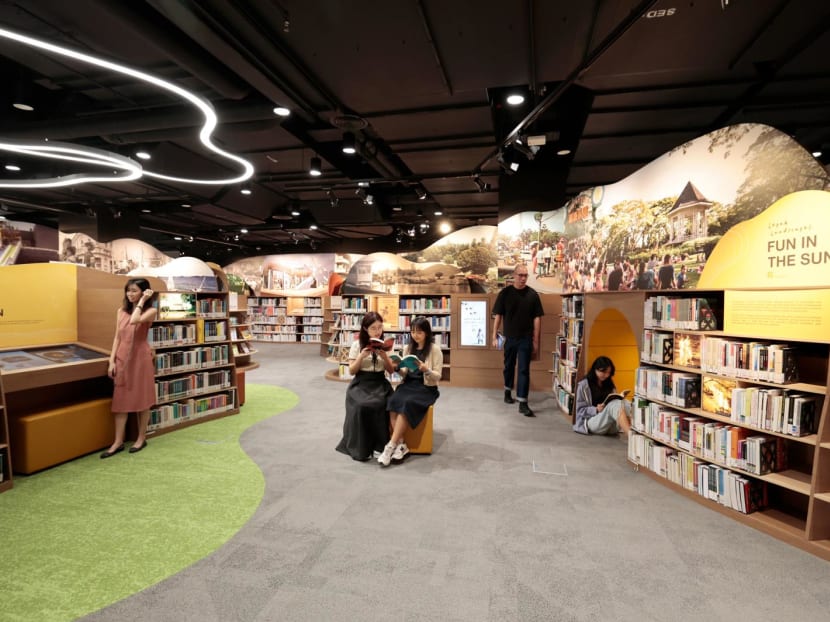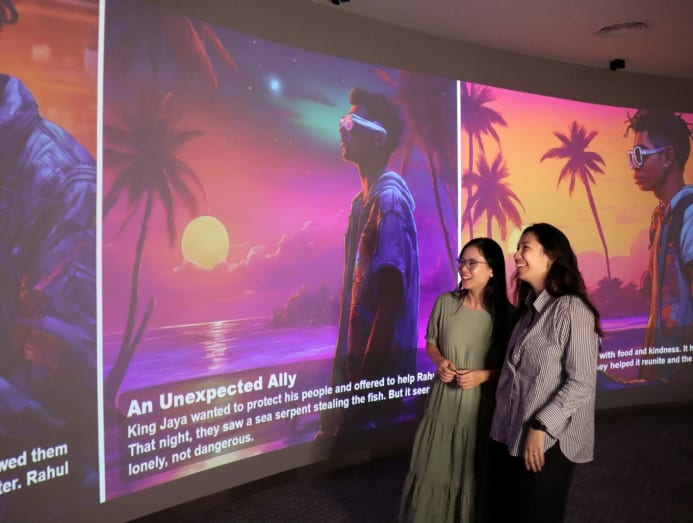Writers in Singapore issue collective statement denouncing NLB's 'uncritical endorsement of generative AI'
The statement, released on Tuesday (Jan 7), highlights several initiatives by the Singapore National Library Board (NLB) and the organisation's approach to artificial intelligence (AI), which the collective claims risks "permanently damaging Singapore’s literary landscape".

The Singapore Alcove at the Central Public Library. (Photo: National Library Board)

This audio is generated by an AI tool.
Members of Singapore's literary and publishing community issued a statement on Tuesday (Jan 7) denouncing Singapore's National Library Board (NLB) for its current approach towards generative artificial intelligence (AI).
The statement expressed concerns over what the group says is NLB's "uncritical endorsement of generative AI". It initially had a total of 68 signatories, including playwrights Alfian Sa’at and Haresh Sharma. Writer Ng Yi-Sheng, one of the organisers of the statement, wrote in a Facebook post that as of 9am on Jan 8, there were 82 signatories.
"We urge policymakers to exercise greater caution in the adoption of this technology, at the risk of permanently damaging Singapore’s literary landscape," read the statement.
The statement was addressed to NLB's chairman Lee Seow Hiang, CEO Ng Cher Pong and chief librarian Gene Tan, as well as the Minister for Digital Development and Information Josephine Teo.
Among the initiatives criticised by the group is StoryGen – a generative AI-enabled prototype jointly produced with Amazon Web Services. Through generative AI, StoryGen allows library visitors to put their spin on Singapore folktales and classics like The Little Red Riding Hood.
The statement continued: "We fear that in your 'ongoing efforts to make generative AI accessible to all', you have failed to consider if such efforts are in the public interest and in line with your mission 'to promote reading and encourage learning through the use of libraries'."

Highlighting concerns surrounding intellectual property, the psychological impact of generative AI, the quality of AI-generated works and environmental impact, the signatories asked that NLB adjust its policies and programmes – removing those that "suggest that generative AI may be an adequate substitute for traditional writing development".
They also called on NLB to have an open discussion with Singapore's literary community to address the community's concerns with AI.
"We trust that you will remember this valuable role you play in our society, and invest wisely in policies that will enrich, not impoverish, our literary culture."
In a statement to CNA Lifestyle, an NLB spokesperson said that the organisation "values the trust of writers and the literary community" and remains "committed to supporting authors and helping them reach more readers".
"We take concerns about generative AI seriously and have implemented safeguards to ensure ethical and responsible use. All materials used are within NLB’s copyright, appropriately licensed, or no longer under copyright.
"For example, StoryGen (Horror edition) includes commissioned stories from an author, highlighting our collaborative approach. Additionally, all content is processed in a protected environment only accessible by NLB, and clear disclaimers inform patrons about the technology’s risks and limitations."
The spokesperson added: "NLB is also committed to educating the public about AI through initiatives like the Read To Be SURE series and the S.U.R.E. framework, which help patrons understand both the benefits and challenges of AI. Our campaigns addressing AI-driven misinformation further reflect our dedication to building a well-informed society.
"We look forward to working more closely with the literary community to address concerns and create new opportunities for writers and publishers. Together, we can amplify their reach, nurture new talent, and connect more readers with their stories."






